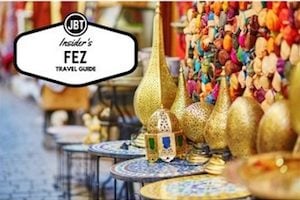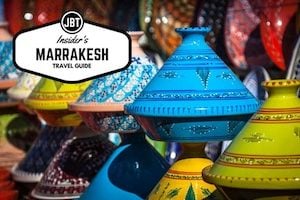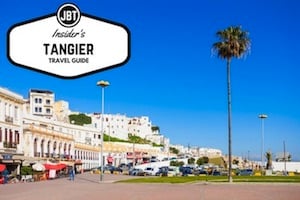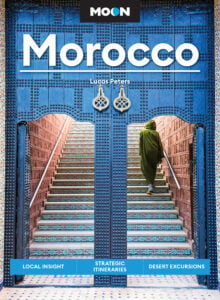
The definition of accessibility and disability can vary greatly from person to person. Whether it is a physical disability meaning a wheelchair is needed to a sight and/or hearing impairments and everything in between it is possible to visit Morocco and have an amazing experience. Morocco is still a developing country and therefore does not have the same legal requirements as places such as the United States, Canada, and the European Union. Visitors with accessibility needs will have to do a bit more research to ensure their needs are met.
Moroccan cities present challenges to visitors with disabilities. Often the streets are cobblestone and uneven. They can be crowded with people, carts, shops, and animals. It is highly advisable that anyone visiting has at least one person with them who can assist with guidance and navigation. You will discover Moroccans are quite helpful and creative when it comes to assisting those with disabilities.
Activities Everyone Can Enjoy in Morocco
While you may face challenges, there are dozens of activities that are possible for anyone! Some of these include;
- A traditional Moroccan cooking class. Kitchens are often on the first floor of riads or schools making access easy.
- 4×4 rides in desert areas and overnight in a luxury camp.
- Visit to the Hassan II Mosque (Muslim and non-Muslims may enter this mosque)
- Museums; in several cities museums are multi leveled, however first level access is almost always possible.
- Visiting the medinas of cities. Some are easier to navigate than others. For example the Fez medina can be difficult without assistance due to many hills and steps.
- …and more!
A Few Obstacles
There are of course challenges that come with visiting Morocco. One example is the lack of public restrooms. Few exist for the general public and even fewer are handicap accessible. There are more being built however there are no regulations in place that make this a requirement in buildings. A second challenge is transportation. There are a limited number of vehicles in the country that include a wheelchair lift. Train travel in Morocco is not possible for those in a wheelchair as train cars are not accessible. Finally if you wish to stay in a riad, a typical Moroccan-style home, it may be a challenge as they are often not designed for those with limited abilities.
Overcoming Challenges
There are some ways visitors with disabilities can overcome some of the challenges presented. If using a wheelchair is required, a push wheelchair will be much easier to navigate than an electric chair. It is possible to hire an aide to assist with navigation and pushing. When selecting a wheelchair, the smallest width chair, while still being comfortable, will make navigation easier. Choosing where to stay may also be a challenge. In most cases hotels are better equipped for those travelers with accessibility needs, but not all are accessible. Be sure to double check when booking for your specific needs. For example, if a roll in shower is required not all hotels have one. They may claim the room is wheelchair accessible, but is the bathroom? Is the breakfast room accessible or does it require going up steps? Some riads may be accessible however very few have elevators so while a ground floor room may be possible, visiting the rooftop terrace will not be.
A visit to Morocco can be an amazing experience for anyone. Don’t let physical challenges stop you from seeing the stars in the Sahara or soaking up the sights of ancient souks!
Visiting Morocco is possible for anyone with a little bit of planning and coordination. The Journey Beyond Travel team is proud to offer handicap accessible itineraries tailored for the needs of each person or traveling party. We have partnered with riads and hotels that offer clients exactly what they need to have an enjoyable visit. Our guides and drivers have the tools and experience to assist visitors of all ability levels. Contact us today to start planning your tour of Morocco.








